Last updated on March 19th, 2025 at 08:08 am
Before diving into The Groom Price have you read read my previous blog post “My last days in the church“? You can do so by clicking here ! The Groom Price is here waiting for you. If you have already read “My last days in the church” let’s jump straight to The Groom Price!

When I originally created a poster promoting Groom Price, 99% of the women who viewed it on Facebook or WhatsApp told me to keep dreaming. One even suggested I should travel to India if I was really serious about the groom price. In my recent past relationships, any mention of groom price results in outright mockery from my partner! My conservative female friends have asked me if I really listen to myself when I say I want to have a price on my head (as the one whose hand is being asked for in the marriage). Play the video below to hear what a friend told me about my groom price demand.
“Ah! Do you believe your parents will approve of this?”
“Are you all right?” “Who will consent to this?”
“Be serious, please.”
When I speak about Groom Price, I am met with all of these and many other responses!
Up until now it might seem obvious what Groom Price is, against the background of Bride Price. In Ghana, where I’m from, paying the bride price is customary. It does not matter the kind of marriage, whether monogamous or polygamous. It also applies even outside the confines of marriage. This custom is strongly ingrained in the dating scene, where it is customary and expected for a male to initiate asking a woman out.
What the hell was I thinking when I chose to flip the script and ask that, should I get married, a price should be placed on my head rather than being the one paying the price—the bride price? Traditionally, in most marriages that I have witnessed or heard discussed, the groom and his family prepare a token, financially and/or materially, and present it to the bride (bride price) and her family (dowry).
“Knocking ceremony” is the common name for the gathering where this transaction takes place. The token, which could be cash or any valuable object like wine, clothes, etc., is used to request the lady’s hand in marriage. The lady is expected to accept or reject this gesture in her response. The bride’s response affects whether she accepts the groom’s proposal to marry. This will be followed by a ceremonial marriage in which both families demonstrate their marriage traditions and finally surrender the daughter to the husband to begin living together as husband and wife.
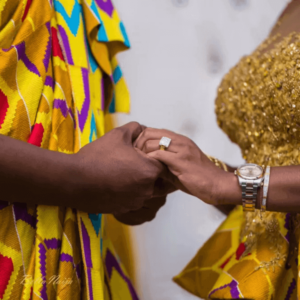
Only recently, after engaging in lengthy discussions with my fellow freethinkers about my groom’s price demands, did I begin to wonder what the true purpose of bride price was. I made two important discoveries about bride price and, eventually, the history of marriage. The first, was a common response by my feminist friends to my demand for groom price. “When we are even trying now to eradicate this whole concept of bride price, you are coming up with groom price”, my most respected feminists reply with raised eyebrows.
“Really?”, I would ask immediately. Elimination of bride price? That’s new to me? All my life I have witnessed bride price been paid for most marriages.
Then I learned how males regularly objectify women through bride price. It fosters the notion that this is a man’s world.
But what is the entire aim of the bride price?
I read that in the past, when men dominated the world of work and women were relegated to the home, the bride price served as some type of start-up capital to enable the woman to run her own business from home. It was intended to make up for the woman’s time being restricted to the home and taken away from her. Certain people used to believe that if you were going to confine a woman at home, you should provide her with some tools and supplies to keep her going.
Clearly, this does not equate to the progress made toward employment equality today; yet, the sheer practice of paying bride price smirks of a patriarchal control system. As a result, the bride price is no longer necessary. It’s antiquated and completely unnecessary. What is the point of the bride price if men and women have equal chances and compete on a level playing field?
Ceremonial—maybe.
This is exactly what it does. It instills hubris and a sense of entitlement in men in order to satisfy their whims and caprices! This is evident when husbands ask their wives, “What did I marry you for?”; “I was the one who married you, not the other way around”; “Go back to your parents!”; “This is not what your parents presented me with when I married you,” and so on.

On the other hand, most women, I believe, desire to keep the concept of bride price, and I believe this is a natural cause. When I revealed the introduction of this script as a teaser, an acquaintance offered her thoughts.
“Ah so you want to be the flower that would be plucked? What happened to you leaving your parents and going to honourably seek and pay a token for the hand of the one who makes your heart dance gbugbutse? (The onomatopoeia for an upbeat musical rhythm is gbugbutse.)

This is why I demand my groom price.
I’m looking to be plucked. I’m the blossom. But it’s not Peter! Who says so? Why not? Why can’t you pay the token for the one who makes your heart skip a beat, dear ladies? I’m waiting for a compelling reason why I can’t accept the groom price. So far, all of the explanations I’ve heard seem like radio interference.
The second discovery about bride price was the payee and the beneficiary.
Did you know some women even pay their own bride price? On the low key.
Yes, there have been numerous occasions where the bride paid for the bride price on behalf of the groom, but on the day of the presentation, it is made to appear as though the groom came with the bride price. This situation usually arises when the lady in question is so in love with the guy that, upon discovering that there is competition from potential suitors or the guy is developing cold feet towards the relationship, she decides to foot the bride price herself as a guarantee of keeping the man as a husband.

Why call it “bride price” at all? Shouldn’t it be called the groom price for women who will go to any length to ensure their status as wives? After all, she’ll be paying for the price herself.
Enough with the nuances and romanticism of bride price.
Why is the idea of a groom price so hilarious and strange in my country?
Why am I being told that I must travel to India if I am serious about having my groom price paid? After all, women love to raise our attention to the inequity in our patriarchal society, so if I’m providing them the opportunity to be seekers, pay the price for the groom, and have the bragging right of doing it better than men, they should rally behind me. In India, it is considered “natural” for the bride to pay the groom’s price. No wonder a friend urged me to travel to India in order for my aspirations to come true.

Unfortunately, folks who say “Go to India” are likely to have no understanding of how groom prices work in India. Dowry (what people refer to as my concept of groom price) is a payment made in cash or kind to a bride’s in-laws at the time of her marriage in India. The sum is determined by a variety of factors, including area, religion, caste and subcaste, the groom’s education, the bride’s skin tone, and the negotiation abilities of both families involved. Even though dowry has been prohibited in India since 1961, it is still widely practiced. Although exact figures are unknown, anecdotally, around half of the weddings in the family and friends’ circles involve dowry.
Click here to learn more about groom price in India.
Simply put, I simply want to be loved on my own terms, and that is my idea of groom price. I’m done now!
I am the one to be conquered.
I am really in dreamland now, thinking of my darling falling down on one knee, drawing my hand toward her, and proposing to me. Aww! And because of that, many women in my nation believe I’m crazy—that another woman will propose to me? Those who want to pay should do so.
In addition, wanting my groom’s fee to be paid is really all about the woman and not about me. Yes, the groom’s fee is not solely intended for me to get a girl to propose to me. It concerns the woman. Let me first give a concise summary of what my groom price includes before I address this issue.

The Groom Price is as follows:
The lady who wants to marry me has to:
- Be older than me, ideally.
- Have a great sense of humour and love life.
- Be self-reliant (able to take care of herself and me).
- Ideally, be busty.
- Propose to me.
- Seek my hand in marriage from my parents.
- Be willing to preserve her last name and to let me adopt her last name as my own.
- Be business-minded


Likes:
- I’ll bring you breakfast in bed, please.
- Let me take care of the shopping and cooking.
- I’d like to take a paternity leave and look after the baby. If you don’t want to have kids, that’s all right. Please tell me.
- Order pizza for me weekly
- I want you to take me to the beach on the last weekend of every month.
- We will have passionate sex every Wednesday and Friday. Concerning your orgasms, don’t worry. You are marrying a sex educator and commentator. You must be eager to dominate. I’m tired of being in charge. You must be skilled at sex or enthusiastic about learning.
- Don’t be scared to tell me when you love another man. I am polyamorous (ethically non-monogamous). We can go on dates with your boyfriend(s).
- You must be emotional. I am emotional. I need my shots of pampering.
- I love surprises.
You read that correctly. My groom price is mostly about being pampered; it has little to do with money or objects. I’m like a puppy who wants to be stroked.

Now I’ll clarify what I mean by saying that it’s all about the woman. You see, I’ve changed a lot from the person I was raised to be. I am astonished that I turned out to be rather different from what my parents and society expected of me because I have always been considered to be a conformist, unwilling to break any set standards.
But that has changed. I once gave an icebreaker speech in a Toastmasters club, introducing myself as a chameleon, explaining that I am many things at different times in my life. I gave another Icebreaker speech titled “Time Will Tell” about a year or two before that one, indicating that I have changed so much every day that I don’t know what tomorrow will bring. But I am quite confident with what time has done now. Life is too short to ignore the questions that arise within. Especially when it comes to your identity and personhood. I was raised as a Christian in a monogamous society and eventually became an atheist, polyamorous, and sex educator. I am still evolving.
I dislike broad generalizations, especially when they are uninformed!
So, I hardly make judgments until I have enough information to form an opinion. I am a strong believer in critical thinking. It frustrates me greatly to see so many people who are too lazy to think for themselves. My personality, I dare to say, would be compatible with a like-minded lady; so, my groom price is also a litmus test for an open-minded lady, particularly one who is a freethinker, a lady who is prepared to do her own thinking rather than rely on society to do it for her.
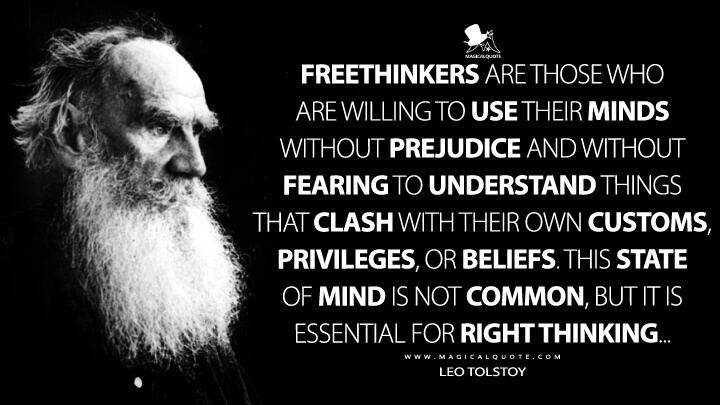
Case in point, as has recently been a custom of mine, I follow up to any objections to my opinions in order to comprehend competing viewpoints and doubt my own. So, I ask, what exactly is the objection to the groom price?
“Have you ever seen a woman marry a man before?” is almost always the response I hear. It is not supposed to be so,” stated a new acquaintance I met at a hotel I recently stayed at. “That’s not how things should be.”
“How is it supposed to be then?” I respond. At this point, my interlocutor either smiles with short bursts of laughter or responds, “It is the man who marries the lady!”
I’m not going to heed my friends’ advise and travel to India to get my groom price paid. That advise, I believe, is deceptive since, if the advisors were aware of the history of marriage or the purpose of groom price in India, they would rather rise to the occasion and pay my groom price. I just happened to see a post on a friend’s Facebook wall, as if fate were writing this thesis. The post asks, “Why do people get married to someone they don’t love?”
This question presumes that marriage is always or has always been about love.
This wasn’t always the case. Marriage has not always been about falling in love. Marriage arose as a result of the need to sustain an economic system. Marriage originated in Middle English between 1250 and 1300 CE. Families would marry inside the family in order to keep their properties and economic worth within the family. Those that wish to gain more will join forces with other families who have more economic value in order to increase their own.

It was more of a transaction, a contract between the fathers of two families.
Modern-day marriage practices can be traced back to the transactional foundation of marriage’s genesis. A father walking his daughter down the aisle and “surrendering” her to the groom. The woman drops her last name and takes on her husband’s last name, which historically expands the man’s lineage because his children would bear his last name.
A widow in ancient Israel was required by law to marry her husband’s brother.
Deuteronomy 25:5 If brothers are living together and one of them dies without a son, his widow must not marry outside the family. Her husband’s brother shall take her and marry her and fulfil the duty of a brother-in-law to her.
Royals have been known to marry among themselves in order to keep their dynasties intact. In the past, most weddings were arranged. Most of the time, it had nothing to do with love. You would very surely be married off to a man if you lived in those times, whether you loved him or not. Marrying for love did not become a thing until the 19th century, at the height of the Enlightenment era, when the concept of striving for personal happiness and fulfilment began to develop.
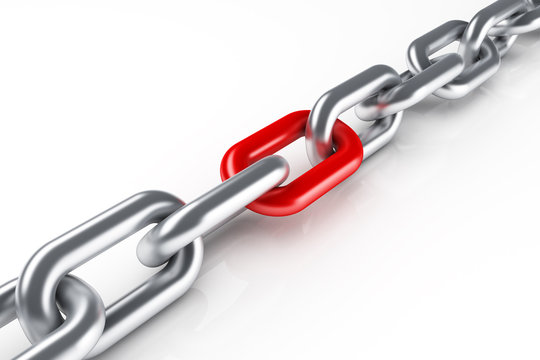
The query now is, “Why do you want to marry?” For love? Is it solely love? Then why care about the outmoded rituals that come with marriage? Marriage has developed over time and continues to evolve, but some people remain trapped in the past, adopting the framework of marriage for economic power from an ancient era and equating it with modern marriage for love in our twenty-first century.
What is the missing link? Relevance! Most individuals are missing out on relevance. Relevance in this context refers to the interests, goals, and boundaries that originate and guide marriage. Love is just one of them. Marriage was historically important for economic relationships between families. Marriage’s importance in the twenty-first century is usually fueled by love. However, that is not the only significance I desire in my marriage. I require additional “relevancies” in addition to love. My groom price includes these additional costs.
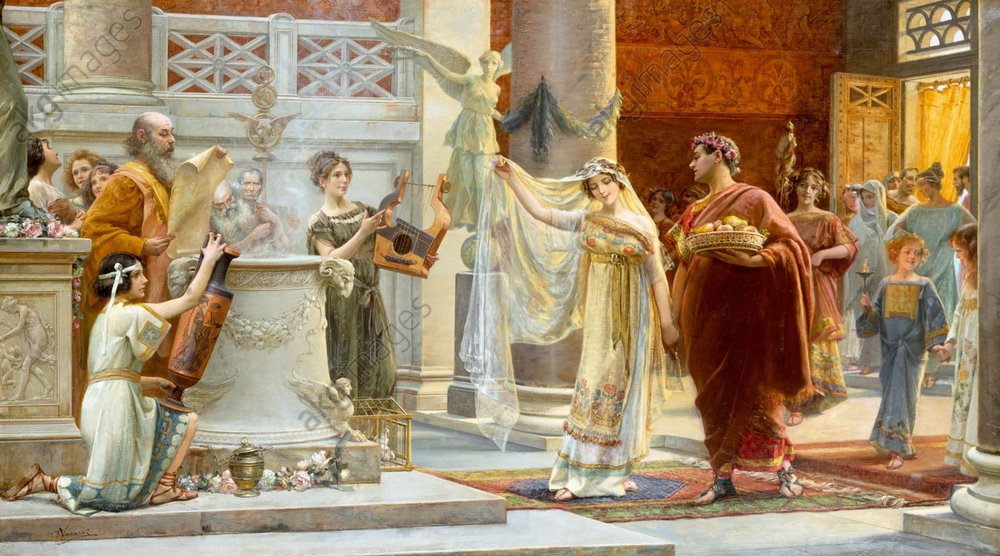
Here’s a post by Felicity Nelson that, in my opinion, explains relevance well.
Generally, a German man that likes hiking, will date a woman that loves hiking too and eventually marry her and have children that they will take hiking.
An Australian man who loves sports and fitness will date a woman who shares his passion and marry her.
A Ghanaian man that loves to go out clubbing, drinking and rarely goes to church will marry a woman that has never tasted alcohol, never stepped foot in a club and goes to church three times a week.
Where are the shared interests?
Are you marrying the idea of a wife or are you marrying a woman of your choosing?
You marry this woman that you share no interests with and can barely sustain a conversation with and then you continue to date women that share your love for clubbing, dancing and having fun.
There are married men who consider fun as something you do with your girlfriend not your wife.
If he wants to go on a fun weekend away he would rather take his girlfriend than his wife
He doesn’t believe that husbands are supposed to have fun with their wives?
There are men that have travelled with their girlfriends to multiple countries yet he hasn’t even flown to Kumasi with his wife.
Does this make sense to you?
Do you realise that you’re a victim of patriarchal social conditioning?
Society is not allowing you to marry the woman that sets your soul on fire
Society told you to marry a certain type of woman and you’ve married her but you still feel unfulfilled with her.
She is not your true soul mate.
Felicity, you said it perfectly! I completely agree with you.

Relevance was what consoled me after most conservative Christian ladies abandoned the thought of us being in a relationship because they couldn’t envision living everyday life with an irreligious—an atheist—partner. They didn’t regard me as religiously relevant. My soul was pierced by those heartbreaks.
If you marry for love, you must also examine the marriage’s relevance, at least in my situation. Allow me to speak for myself.
I am not speaking for all men.
I cherish my tranquillity. I adore life. I enjoy learning.
If you are willing to pay my groom price, we can work out satisfactory arrangements. I am not marrying merely for love. My groom price includes my peace of mind. Sorry if you were expecting me to propose to you. You could be waiting an eternity. I am the flower that must be plucked. I am the puppy who needs to be cuddled. As a puppy, I am devoted to my owner. My eternal companionship is yours. This might be us, Ghanaian ladies, but you don’t want to pay my Groom Price.
Make your reservation now, while stock last!

What’s next in Peter’s Box? ¡Hasta luego amigos!




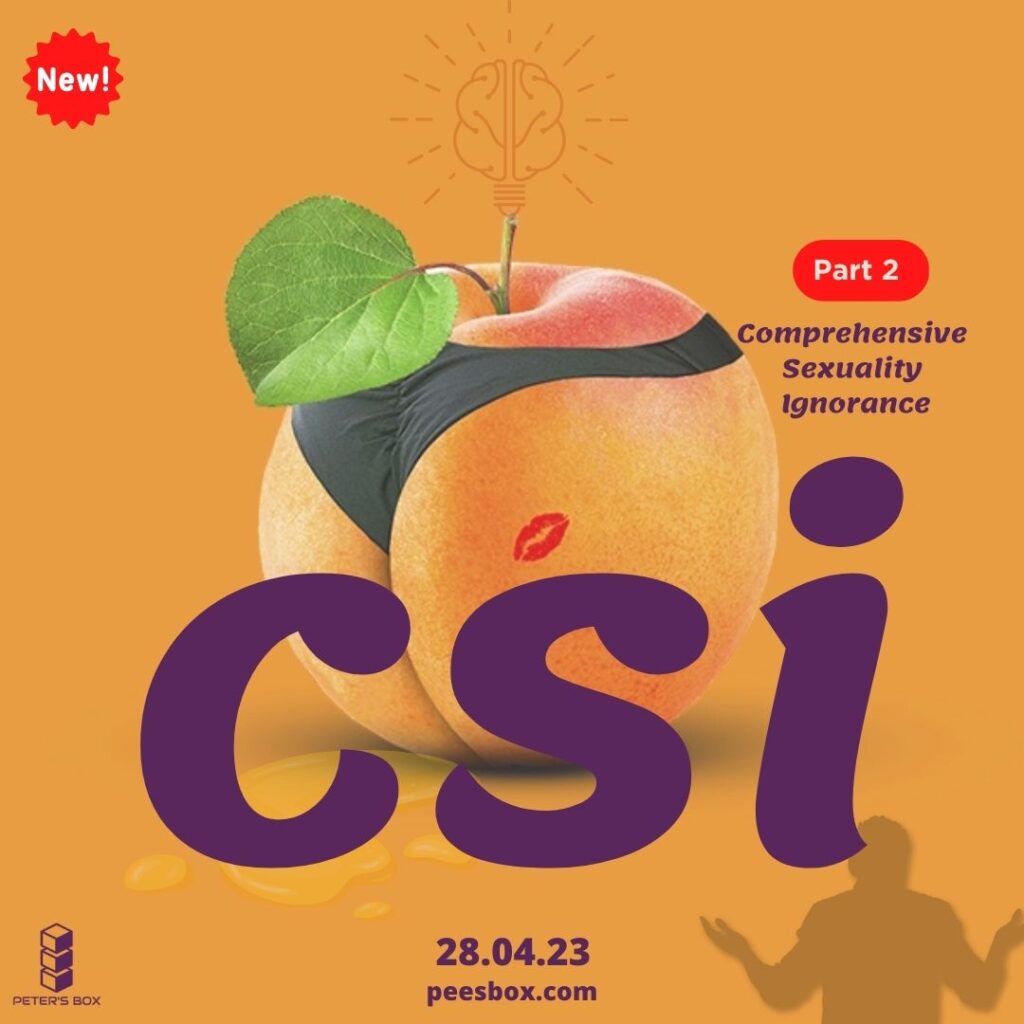
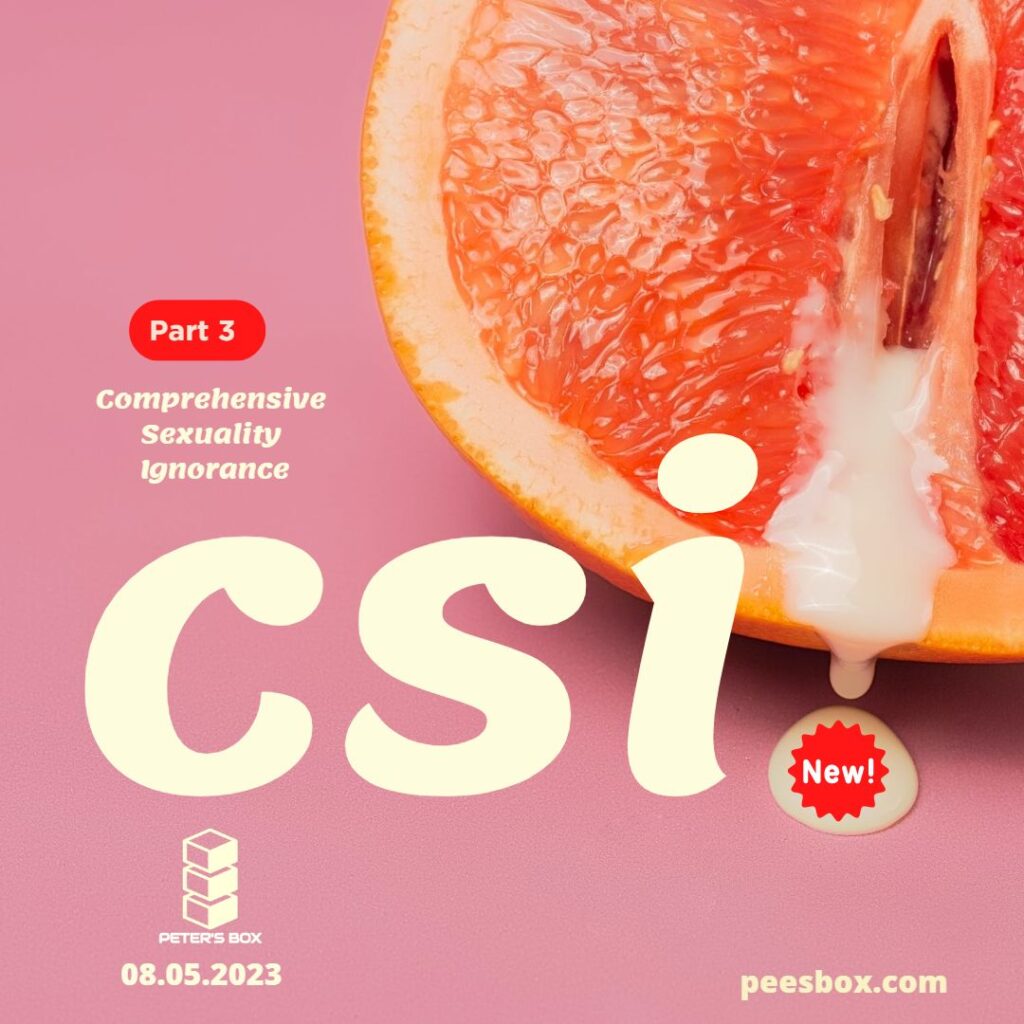
Looooove this. I totally agree with Felicity too. I love to explore, read, entertain and enjoy some cozy times with my husband and as family. I love to be comfortable so I pride myself on planning adequately for the present and the future. I will like to marry a man who shares these ideals so we can build a great life together.
Life is meant to be lived. To live is to be at tranquility and you owe yourself that pleasure. All the best in your planning.
Interesting Peter !!
Quite curious, what’s the inspiration behind this?
My inspiraton has always been to see tranquility prevail. The human species is fond of functioning and reasoning using patterns. These patterns can become generally harmful as it might not apply in every case. Marriage and love is a typical example of the many. We are all ‘expected’ to live according to what has been laid down – to follow the pattern without questioning.
My inspiration is to spark a conversation about the outliers in every idea or concept.
Looking at that the groom price requirements are made me rethink on a lot . Women go in for men of a particular body stature and age . It’s odd to realise men also have that
Most decisions or expectations we make, are subconsciously influenced not only by biology or physiological dispositions but also by past experiences. I am pretty sure that these requirements I have put up would not have existed probably ten years ago. Abena, I would be curious to know what you think of the proposal bit. Seems a lot of women find it ridiculous. Do you think it is impossible for a woman to propose to a woman?
These are my thoughts
Feminist are not looking for a world or society where women are the ones in charge. We are only advocating for equal playing field. Personally, I don’t even like the idea of bride price. (“After all, women love to raise our attention to the inequity in our patriarchal society, so if I’m providing them the opportunity to be seekers, pay the price for the groom, and have the bragging right of doing it better than men, they should rally behind me.”)
Women have been proposing to men they like but it is not a popular culture because of them are shamed by the same men who accept their proposals. I’m sure you are aware of the unprintable words they use on them. Again, we live in a society that shames non conformists. If they tables were turned, many men would share same sentiments your female friends shared with you.
About your list – I don’t think they are too much. They say everyone has a price and maybe those are yours and you should be unapologetic about them. I think if people want to get married, they should do so on shared interests because “love (spark)” can be lost but shared values keep people together.
Word politics
Bride price has lost its relevance hence some families accept as low as 50gh for its representation than the real value of what families in the past expected. This has not changed how families and many men think of the gesture. They still feel they owe the women. So, if you talk about groom price and want the pampering, it could still be interpreted as a reflection of what it means for a man to pay the bride price of a woman. Groom price plays in the word politics of bride price so maybe you might want to look for another vocabulary of it.
Finally, I agree with Felicity but that actually takes me back to your female friends. How does an open-minded person like you keep friends who conform? I’m genuinely concerned.
Peter Dankwa I just read your piece and damn! It’s more than insightful.. the preamble, historical concepts and their congruence with today’s practice, and above all, the conclusion!
Open minded piece.. and I’m not surprised that you are looking out for likeminded lady.
I can relate so much🤝🏽… that aspiration can never be trivialized ✊🏼..
You are an exceptional writer
Thank you for your kind words Frank! ☺️
I am hoping my wives pay my groom price soon, lol.
I really appreciate how you challenge conventional norms with your groom price concept. It’s a refreshing perspective that opens up the conversation about power dynamics in relationships. I do think it’s important to note, however, that any transactional aspect—whether for a bride or groom—can be problematic if it overshadows the deeper emotional connection that marriage (or partnership) should ideally be about. Just food for thought!